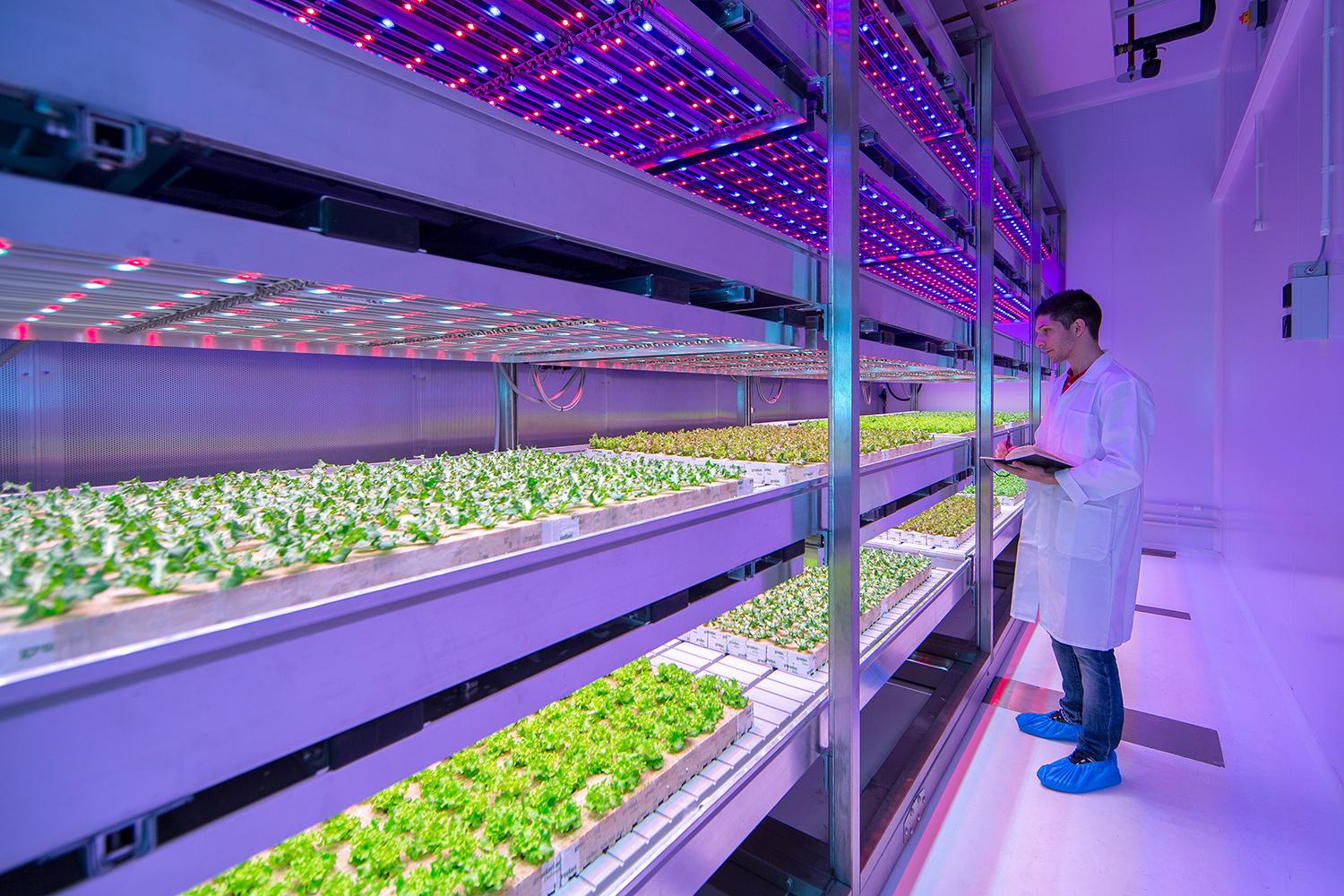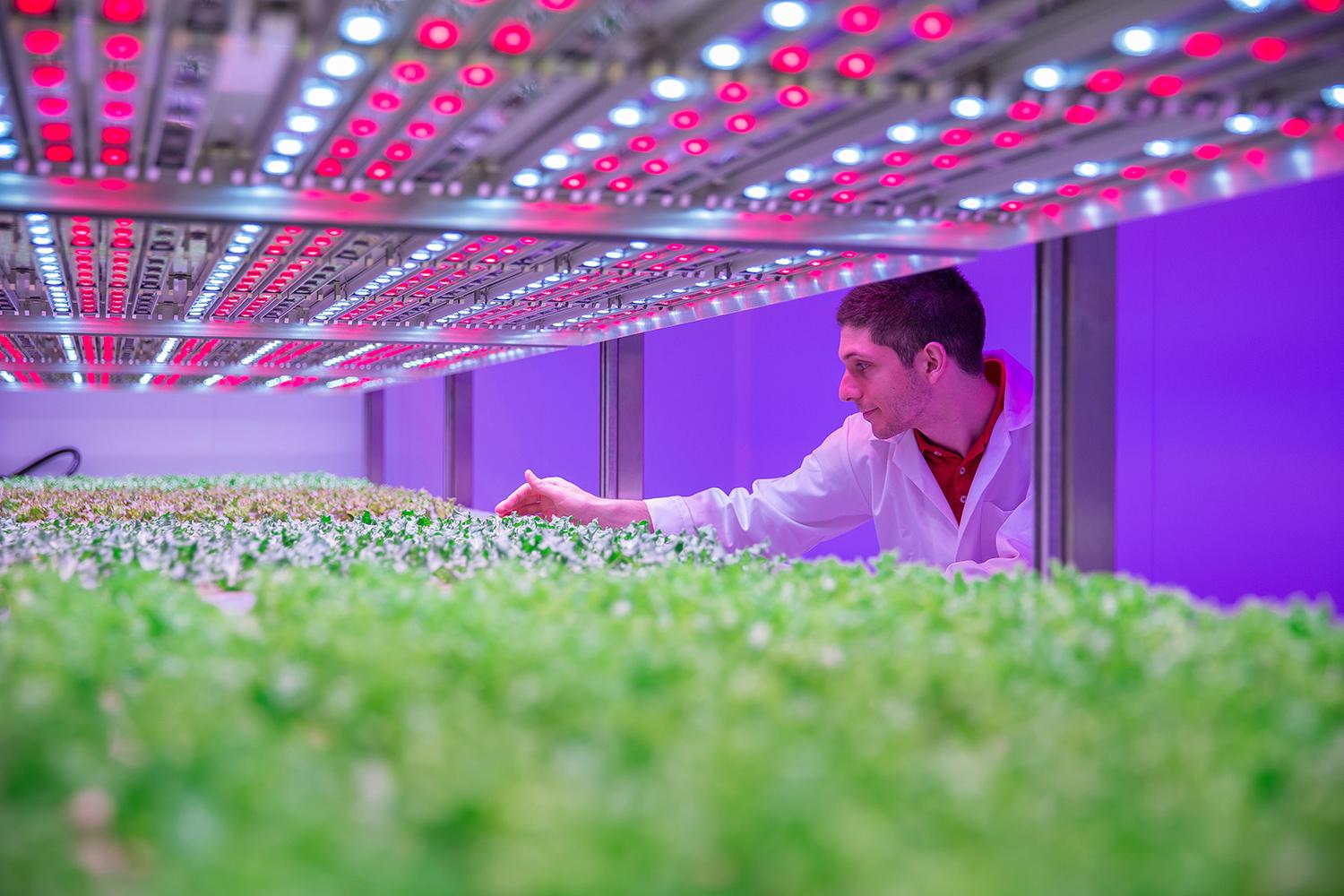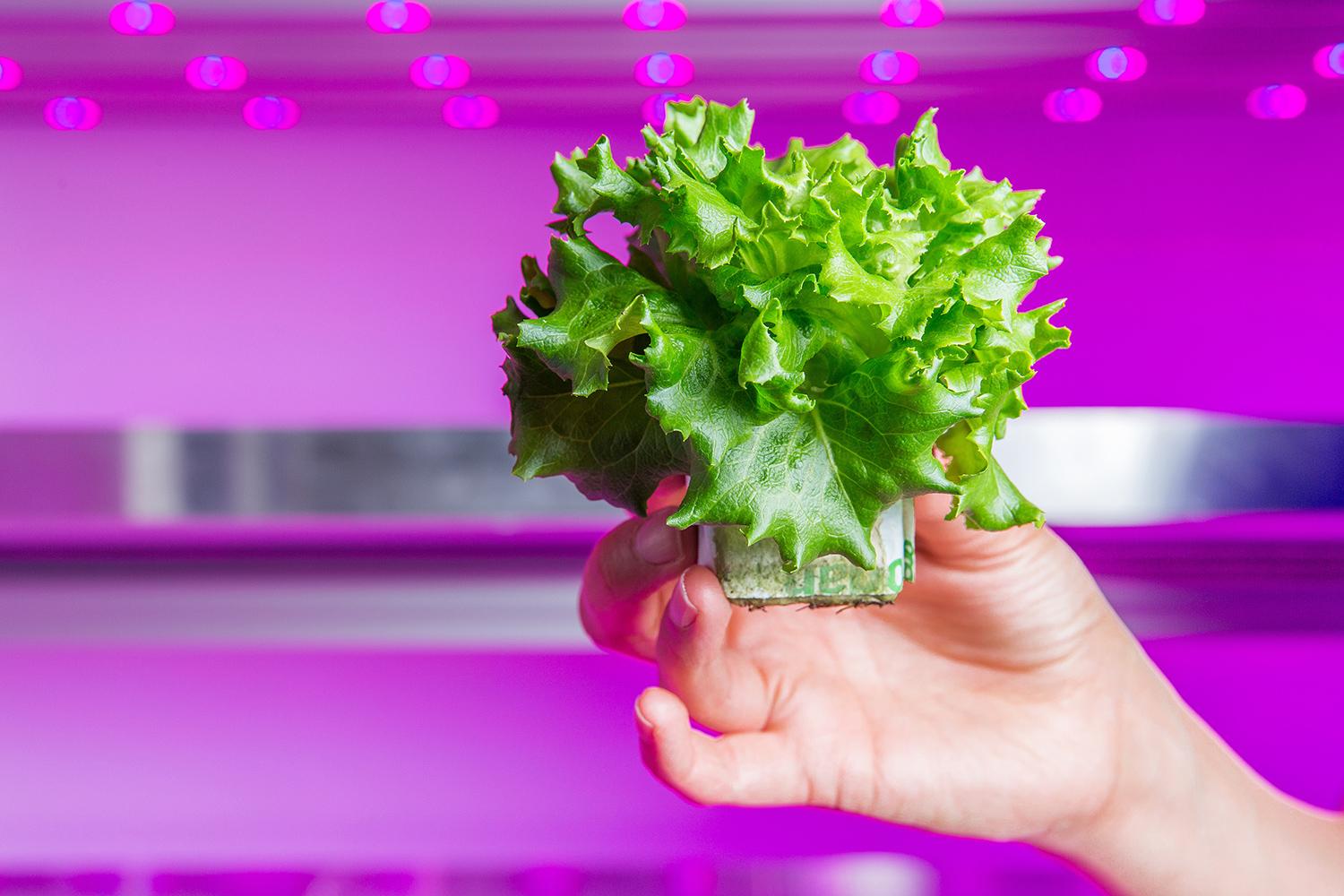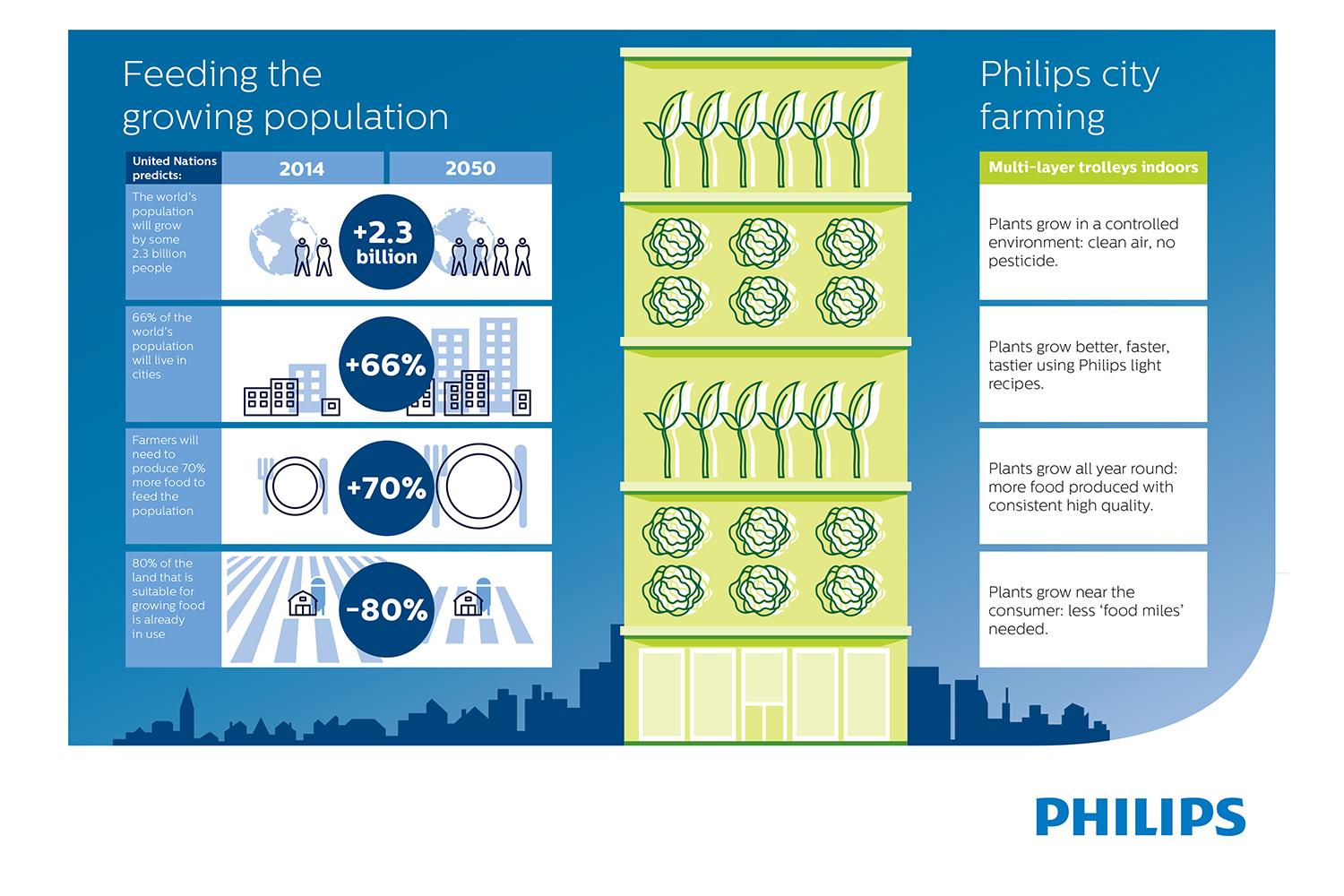According to Philips, the answer may be indoor farms that grow plants with LEDs. The company has recently opened its GrowWise City indoor farm in the Netherlands, and the facility has the potential to revolutionize the way we cultivate food, and maybe even solve world hunger issues
At the LED-powered, 2,500-square-foot facility, Philips’ scientists are working to create “LED light growth recipes” for producers, so that future farmers will be able to grow healthy and fresh crops all year long — without any soil or sunlight.
GrowWise City is a clean environment that allows for absolutely no natural light or air. Instead, the farm employs a connected, customizable LED system that provides specialized lighting sequences that target each plant’s ideal growth requirements — creating veggies and other fresh produce that’s completely organic and free of pesticides.
The research center is comprised of four-layered mechanized planting racks in eight climate rooms. Each of the planting rack’s layers uses Philips GreenPower LEDs that specialize specifically in crop-growth, and can be tweaked to suit individual plants. Right now, Philips researchers are focusing on light recipes for upgraded leafy vegetables, strawberries and herbs, and they’ll soon move on to grow better carbohydrate crops like wheat and potatoes.
“Our aim is to develop the technology that makes it possible to grow tasty, healthy and sustainable food virtually anywhere. The research we are undertaking will enable local food production on a global scale, reducing waste, limiting food miles and using practically no land or water,” said Gus van der Feltz, Philips Global Director of City Farming, in a press release.
But like we mentioned earlier, it’s not all about healthier, better-tasting food – Philips is addressing societal concerns like world hunger, and looking for a more feasible way to grow food when resources are depleted in the future. The company’s ultimate goal is to improve the technology so that year-round indoor farming becomes more feasible, and can be adopted in crowded cities that don’t have lots of water, energy or land to work with.
The Netherlands facility is up and running and is now home to 10,000 researchers who are working hard in GrowWise City’s technology hub to create better food for everyone.






